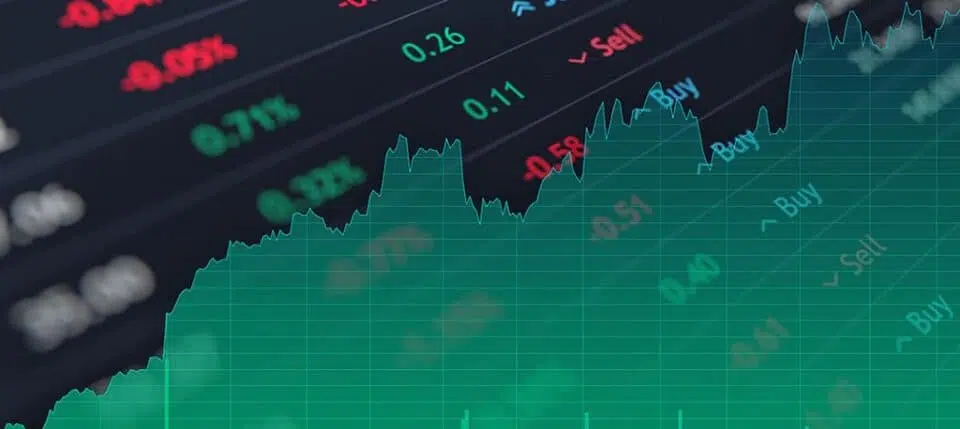CTO Crypto Meaning: Understanding Consumer Token Offerings

The cryptocurrency landscape has rapidly evolved, transitioning from Initial Coin Offerings (ICOs) to Security Token Offerings (STOs), leading to the emergence of Consumer Token Offerings (CTOs). As the term suggests, Consumer Token Offerings (CTOs) focus on selling tokens that are not classified as securities, making them a more effective approach in blockchain-based crowdfunding. Unlike ICOs and STOs, CTOs are designed to enhance user experience by providing tokens that serve practical, everyday purposes rather than functioning as investment vehicles.
As Consumer Token Offerings (CTOs) gain traction, it’s crucial to grasp the unique benefits they bring compared to earlier fundraising methods. In this blog, we will delve into the key distinctions between ICOs and CTOs, thoroughly define what a CTO is, and explore the various advantages it offers. By examining real-world applications, we will also discuss the future of Consumer Token Offerings and their growing impact on blockchain development.
Table of Contents
What is a Consumer Token Offering?
The latest fundraising trend in the crypto world is the Consumer Token Offering (CTO). Designed to prioritize convenience and accessibility, CTOs offer a user-friendly approach to token distribution. While Initial Coin Offerings (ICOs) and Security Token Offerings (STOs) aim to attract investors by selling coins with potential financial returns, Consumer Token Offerings (CTOs) focus solely on distributing tokens for practical use rather than investment.
In a CTO, tokens are provided directly to consumers and can be used to access goods and services within a specific ecosystem. Unlike tokens from ICOs or STOs, these consumer tokens are not tradable on open markets and are not considered securities. This distinct structure helps CTOs avoid the regulatory challenges often faced by ICOs, STOs, and Initial Exchange Offerings (IEOs), which are frequently categorized as securities offerings.
The growing demand for blockchain projects to thrive within evolving regulatory frameworks while still delivering tangible value to users has spurred the creation of Consumer Tokens. To guide the ethical and responsible development of these tokens, The Brooklyn Project, a crypto legal initiative supported by ConsenSys, introduced the “Consumer Token Framework.” This framework helps ensure that consumer tokens are developed with both legal compliance and user value in mind.
How Might Regulators React to Consumer Token Offerings?
The regulatory response to Consumer Token Offerings (CTOs) remains a topic of interest, particularly given the U.S. Securities and Exchange Commission’s (SEC) stance that most cryptocurrencies are considered securities. However, this classification notably excludes Ethereum (ETH) and Bitcoin (BTC). If you’re planning to launch a Consumer Token, understanding how regulators will perceive this new model is crucial.
Joseph Lubin, founder of ConsenSys, believes that the U.S. SEC will likely be receptive to CTOs. His optimism stems from SEC Chairman Jay Clayton’s comments clarifying that ETH and BTC are not classified as securities. Because Consumer Tokens are structured for specific use cases and not for speculative investment, Lubin argues they should not fall under the SEC’s securities regulations.
Consumer tokens are designed with clear utility, allowing holders to access services or products within a designated ecosystem. For example, the CVL consumer token enables buyers to access news from an ethical newsroom. Unlike traditional securities, these tokens are not sold with the promise of significant financial returns, which further distances them from being classified as securities.
Here are key reasons why Consumer Token Offerings could gain approval from the SEC:
-
Purpose-Driven Tokens:
Consumer tokens are developed with the primary intent of being consumed or used, rather than traded.
-
Framework Compliance:
The tokens follow the consumer token framework, spearheaded by The Brooklyn Project and supported by ConsenSys, ensuring responsible development and promotion.
-
Limited Value Fluctuation:
Unlike other tokens, consumer tokens are not designed to increase significantly in value.
-
Non-Security Classification:
Since consumer tokens are not classified as securities, they do not require SEC registration.
-
No Speculative Resale:
Tokens cannot be resold as speculative financial instruments, further distinguishing them from securities.
-
Utility-Based:
Token holders use consumer tokens for specific services or products, making them functionally different from utility tokens, which can be traded on exchanges and may fluctuate in value.
While some might confuse consumer tokens with utility tokens, it’s important to note that consumer tokens are purely intended for the consumption of goods and services, not for speculation. Once regulatory clarity is established, including potential SEC approval, interest in how to create and launch Consumer Token Offerings will likely rise among investors and businesses alike.
The Latest Market Data on CTO Growth
Consumer Token Offerings (CTOs) continue to show significant growth, particularly in the real estate investment trust (REIT) sector, where the focus remains on income asset acquisition and effective management. According to the latest market data, the global tokenization market was valued at USD 2.81 billion in 2023 and is expected to grow to USD 3.32 billion by 2024. Projections estimate that the market will reach an impressive USD 13.20 billion by 2032, driven by a compound annual growth rate (CAGR) of 18.8% between 2024 and 2032.
These recent financial reports highlight the expanding role of Consumer Token Offerings within the real estate investment trust industry, underscoring their strong market performance and growth potential in the years ahead.

Why is a Consumer Token Offering Necessary?
Consumer Token Offerings (CTOs) have emerged as a vital solution to the shortcomings of earlier token models, such as Initial Coin Offerings (ICOs) and Security Token Offerings (STOs). ICOs, once popular, often fell prey to scams and weak projects, leading to a loss of confidence among consumers. STOs offered a more secure, regulation-compliant alternative, but they still focused primarily on investment-driven tokens.
The need for Consumer Token Offerings arises from the demand for a more customer-centric approach in the crypto space. CTOs prioritize token sales strategies that focus on actual product and service purchases rather than speculative trading on open markets. This shift is essential in ensuring tokens are used for practical purposes within specific ecosystems, rather than just serving as assets to be traded.
As blockchain technology continues to gain momentum, the demand for Consumer Token Offerings and the chief technical officers (CTOs) overseeing their implementation will naturally grow. The rise of consumer tokens is expected to be a key focus for the industry, with thought leaders like Joseph Lubin predicting that CTOs will play an increasingly crucial role in shaping the future of blockchain development.
How Do Regulators Approve Consumer Token Offerings (CTOs)?
The approval of Consumer Token Offerings (CTOs) by regulators is a critical process aimed at protecting consumer interests and ensuring that these offerings comply with existing legal frameworks. Below is a summary of the major steps authorities follow to approve CTOs:
-
Framework Development:
Regulatory bodies, such as the U.S. Securities and Exchange Commission (SEC), review frameworks developed by projects like The Brooklyn Project. These frameworks define the nature of Consumer Tokens, emphasizing their use for consumption rather than investment. By aligning CTOs with these guidelines, they can remain compliant with relevant regulatory thresholds and avoid being classified as securities.
-
Legal Consultation:
Companies typically engage legal experts to review their token distribution strategies and structures before launching a CTO. Legal professionals ensure that the tokens are designed to avoid traits that could categorize them as securities, such as similarities with equity. Legal guidance is essential for navigating the complex regulatory environment and mitigating risks associated with non-compliance.
-
Transparent Documentation:
Businesses must provide detailed documentation outlining the function, purpose, and use of each token within the ecosystem. This transparency helps regulators assess whether the offering aligns with consumer protection laws and other regulatory standards. Clear and comprehensive documentation is crucial for ensuring that the offering is legal and adheres to established guidelines.
-
Regulatory Agency Interactions:
Companies must maintain open lines of communication with regulatory agencies. Engaging in pre-filing discussions allows businesses to address any potential issues upfront and clarify regulatory expectations. This proactive approach fosters trust between the project and regulators, which can streamline the approval process.
-
Compliance Monitoring:
Once a CTO is approved, ongoing compliance is required. Regulators may mandate periodic reporting on the project’s development and adherence to the parameters outlined during the approval process. Continued monitoring ensures that the offering remains compliant over time and that consumer interests are safeguarded.
The approval process for Consumer Token Offerings is a collaborative effort between companies and regulatory bodies. By adhering to established frameworks, seeking thorough legal consultation, and maintaining transparency and communication with regulators, businesses can successfully navigate the regulatory landscape and launch compliant and effective CTO initiatives.
Startups That Have Used Consumer Token Offerings (CTOs)
Despite being a relatively new fundraising model, several startups have already leveraged Consumer Token Offerings (CTOs) to fuel their blockchain-based projects. One of the early pioneers in this space is the media platform Civil, which utilizes blockchain technology to promote sustainable journalism. In 2018, Civil launched the CVL token, allowing users not only to purchase premium content but also to tip journalists, creating a new model for supporting independent media.
Another notable startup utilizing CTOs is Blockstack, a decentralized computing network. Blockstack made headlines in 2019 by becoming the first startup to receive approval from the SEC for a Consumer Token Offering, raising $23 million from over 4,500 investors. The company’s STX tokens power the decentralized apps on the Blockstack network, offering a real-world use case for consumer tokens.
These examples highlight how CTOs emphasize customer engagement, regulatory compliance, and innovation in fundraising. As more companies adopt this model, we could see further innovation in the ICO vs. IPO debate, with CTOs offering a compelling alternative for blockchain startups.
Use Cases of Consumer Token Offerings (CTOs)
Consumer Token Offerings (CTOs) are rapidly becoming a game-changing tool in the blockchain world, allowing entrepreneurs to engage directly with customers while delivering real value. Below are some noteworthy use cases that demonstrate how CTOs have been applied across various sectors:
Civil Media
A successful use case of a Consumer Token Offering is the blockchain-based journalism platform Civil, which launched the CVL token. This token enables users to purchase premium content on an à la carte basis and allows them to directly support journalists. Civil’s model empowers readers by giving them control over the type of news they wish to pay for while providing journalists with a steady revenue stream, ensuring that quality journalism thrives in the digital era.
Kik by Kin
Kik Interactive introduced the Kin token, which is used across the Kin Ecosystem, particularly within Kik’s messaging application. This CTO allows users to earn and spend their Kin tokens on various services, such as purchasing digital goods or accessing premium content. This example showcases how CTOs can enhance user engagement and foster a community-driven economy within a digital platform like Kik.
Blockstack
Blockstack became the first company to receive SEC approval for a Consumer Token Offering after raising $23 million. The STX tokens are required for accessing decentralized applications (dApps) built on the Blockstack platform. This demonstrates how CTOs can drive the adoption of decentralized technologies while offering tangible value to users through token-based services.
Brave Web Browser
The privacy-centric Brave web browser leverages a customer token system through the Basic Attention Token (BAT). Users are rewarded with BAT tokens for viewing advertisements, which they can then use to purchase services or support content creators. This innovative approach shifts the focus to user privacy and engagement, transforming the traditional ad space into a more user-driven model.
Everipedia
Everipedia employs IQ tokens as a reward mechanism in its decentralized encyclopedia, incentivizing users for creating and editing content. Users can also vote on content or access premium features in exchange for IQ tokens. This system promotes community involvement and validates the platform by rewarding contributions to the ecosystem.
Key Takeaways
- Civil Media: Allows readers to support journalism by purchasing content with CVL tokens.
- Kik by Kin: Powers a community-driven economy with Kin tokens used for digital goods and services.
- Blockstack: Promotes decentralized app usage through STX tokens, approved by the SEC.
- Brave Browser: Enhances user privacy and engagement by rewarding users with BAT tokens for viewing ads.
- Everipedia: Incentivizes content creation and editing with IQ tokens, fostering community development.
CTOs, with their focus on direct interaction between startups and customers, provide real value through utility rather than speculation. They help build sustainable ecosystems that benefit both users and producers, driving innovation and fostering growth in the increasingly blockchain-driven business world.
Benefits of Consumer Token Offerings (CTOs)
Consumer Token Offerings (CTOs) provide significant advantages to consumers, businesses, and the blockchain ecosystem as a whole, serving as a strong alternative to traditional fundraising methods. Below are the main benefits of a CTO:
1. Legal Compliance
Unlike Initial Coin Offerings (ICOs), which faced numerous legal challenges, CTOs are designed to comply with existing laws and regulations. By focusing on consumer tokens that are not considered securities, CTOs reduce the risk of regulatory fines or shutdowns, making it easier to navigate the legal framework.
2. Less Speculation
By capping the resale of tokens, CTOs aim to minimize speculative trading. This keeps the focus on the utility value of tokens within a project’s ecosystem rather than on volatile price fluctuations. Through this approach, CTOs foster a more engaged and sustainable user base by aligning incentives with actual token use.
3. Accessibility
Unlike Security Token Offerings (STOs), which are restricted to accredited investors, Consumer Tokens open up funding opportunities to the broader public. This democratization allows more individuals to invest in blockchain-related projects and benefit from their success.
4. Transparency
Successful CTOs prioritize transparency in the design, distribution, and governance of their tokens. By adhering to frameworks like The Brooklyn Project, CTOs ensure that all stakeholders are well-informed about the project’s development, the team behind it, and how the tokens are being used.
5. Ecosystem Development
CTOs emphasize real-world applications and consumer interaction, contributing to the development of the entire blockchain ecosystem. As more projects adopt this model, the industry benefits from a stronger feedback loop, accelerating growth, innovation, and wider adoption.
Conclusion
Consumer Token Offerings (CTOs) are rapidly emerging as a transformative tool in the blockchain space, providing a regulated, transparent, and customer-centric alternative to traditional fundraising models like ICOs and STOs. By emphasizing utility over speculation, CTOs create sustainable ecosystems that prioritize real-world applications and direct consumer engagement. From media platforms like Civil to decentralized computing networks like Blockstack, the success of CTOs demonstrates their potential to democratize access to blockchain projects while ensuring legal compliance and transparency. As more startups adopt this innovative fundraising approach, the blockchain ecosystem is poised for continued growth, innovation, and widespread adoption. The future of blockchain fundraising lies in offering real value to consumers, and CTOs are paving the way for this next phase of development.
Recent Insights:

The Benefits and Drawbacks of Computer-Assisted Learning
The Benefits and Drawbacks of Computer-Assisted LearningComputer-assisted learning (CAL) is revolutionizing education by enhancing both teaching and learning processes, resulting in higher engagement and better outcomes. However, despite its...

Casper Network: Revolutionizing Enterprise Blockchain Adoption
Unlocking the Potential of Blockchain Technology with Casper NetworkBlockchain technology stands as one of the most groundbreaking innovations of the 21st century, with the power to transform nearly every industry. As we delve deeper into its...

Web3 AI: How AI Appears in the Web3 World
Web3 AI: How AI Appears in the Web3 WorldAs we stand on the brink of a transformative technological era, industry experts predict a monumental shift in a significant portion of the world's software, with AI and machine learning (ML) emerging as...
Contact Us
Info@DigitalOriginTech.com
Get all your questions answered by our team.
F&Q
What is a Consumer Token Offering (CTO)?
A Consumer Token Offering (CTO) is a fundraising model in the blockchain industry where companies distribute tokens to consumers for direct use within their ecosystems. Unlike ICOs or STOs, CTOs focus on providing utility, allowing token holders to access goods and services rather than simply serving as an investment.
How do Consumer Token Offerings differ from Initial Coin Offerings (ICOs) and Security Token Offerings (STOs)?
CTOs differ from ICOs and STOs primarily in their focus on utility rather than speculation. While ICOs and STOs often cater to investors seeking financial returns, CTOs are designed for consumers who want to use the tokens for specific purposes, such as purchasing products or services. CTOs also adhere to stricter legal and regulatory frameworks to avoid being classified as securities.
Are Consumer Token Offerings legal?
Yes, Consumer Token Offerings are designed to comply with legal regulations. By focusing on non-security tokens with practical use cases, CTOs avoid many of the legal pitfalls that ICOs and STOs have encountered. Regulatory compliance is a key advantage of CTOs, with frameworks like The Brooklyn Project guiding their development.
Can anyone participate in a Consumer Token Offering?
Yes, unlike STOs that are often restricted to accredited investors, CTOs are generally open to the public. This democratizes access to blockchain projects, allowing a broader audience to participate in and benefit from the growth of these initiatives.
What are the benefits of investing in a Consumer Token Offering?
Investing in a CTO offers several benefits, including legal compliance, reduced speculation, increased transparency, and direct utility within the project’s ecosystem. CTOs create a sustainable model by aligning token usage with real-world applications, fostering long-term engagement and development in the blockchain space.

